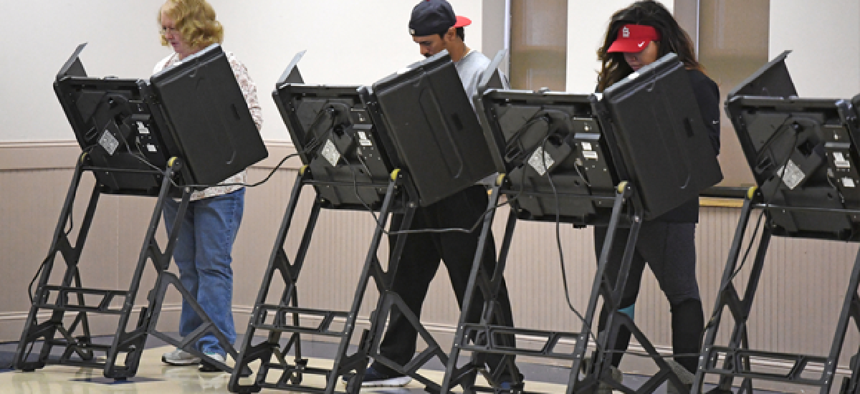EAC takes heat from states for hold-up on voting machine standards

State election officials say they have been waiting years for Election Assistance Commission to approve the newest version of technical and security standards.
While the Election Assistance Commission said it was eager to approve updated technical and security standards for the nation's voting machines, the EAC came in for harsh criticism from several state officials at a May 6 public meeting.
State election officials have been waiting years for EAC to approve the newest version of the standards, said Virginia Elections Commissioner Christopher Piper. He called the current federal certification process "an obstacle to a more secure system," adding that “the delay has proven to be a convenient excuse in all sectors not to update our voting systems."
Paul Lux, elections supervisor in Florida's Okaloosa Country, agreed, saying that by the time EAC's security standards work their way through the approval process, they will already be obsolete. Further, the rigidity for updating those standards once they're approved make even small patches and updates impractical.
In response, EAC Chair Ben Hovland claimed the process for approving voting standards is largely dictated by the 2002 Help America Vote Act, while Commissioner Thomas Hicks suggested the commission should be praised for meeting at all during the COVID-19 outbreak. "I think that one point that's been lost in our discussion here is that with the global pandemic, the EAC could have easily been sitting around and not moving forward at all with the [Voluntary Voting System Guidelines]," Hicks said.
However, Piper and others made clear their frustrations were related to the approval and certification process more generally, which has dragged on for years. The commission's Technical Guidelines Development Committee approved high-level principles for the new standards in 2017, but it has not received a vote by commissioners, nor have they finalized a corresponding document that outlines more specific technical requirements. The agency's board of advisors and standards board must also weigh in during the process, but neither body has convened for a meeting this year.
While some of the delay can be attributed to the EAC operating without a working quorum for 10 months, the commissioners said at an annual conference for election officials in January they had also delayed a vote to deal with grammatical and spelling errors in the five-page document.
"States are desperate for flexible, agile requirements for our voting equipment. The federal stamp of approval is an asset for us, but only when it's current," Piper said.
Earlier this year former Hart InterCivic executive Eddie Perez said that despite EAC issuing updated standards in 2015, most voting machines in use today are designed to technical specifications developed and approved in 2005.
Lux confirmed that practice, telling commissioners that vendors "are not going to spend a lot of research and development capital creating voting machines to a standard that is going to change soon, so instead they develop 'new' machines to the old standards."
Following the meeting, Perez, now global director of technology research and development at the non-profit OSET Institute, said in an interview that state and local officials have been "increasingly vocal about their displeasure with the slow pace of the standard setting process" and that the comments from Piper and Lux at the meeting are "a strong indication of how dysfunctional things have gotten," he said.
This article was first posted to FCW, a sibling site to GCN.





